Two of the most important topics during last year’s Shangri La Dialogue were ‘Upholding the rules-based regional order’ and demilitarisation of the South China Sea in the shape of a discussion on practical ‘measures to avoid conflict at sea’.
Prime Minister of Australia Malcolm Turnbull, in his key note address at the Dialogue, had remarked that “Some fear that China will seek to impose a latter-day Monroe Doctrine on this hemisphere in order to dominate the region, marginalising the role and contribution of other nations, in particular the United States. Such a dark view of our future would see China isolating those who stand in opposition to or are not aligned with its interests while using its economic largesse to reward those toeing the line”. He also raised questions about whether China will respect the sovereignty of others and in so doing build a reservoir of trust and cooperation with its neighbours.
There were several others at the Shangri La Dialogue who opposed China’s aggressive activities in the South China Sea (SCS) and expressed views regarding China continuing to pose not only a challenge but a threat to the prevailing international order. Now, about a year later, in the run up to another round of Shangri La dialogue, it is useful to assess whether China has indeed made any progress towards adhering to international norms and a rule based order, especially in so far as the SCS issue is concerned.
Last year, China had agreed to evolve a framework for concluding a ‘Code of Conduct’ in the South China Sea with the ASEAN countries arrived at in 2002, which was seen as a move forward on the Declaration on Code of Conduct (DOC) in the SCS. Demilitarisation remained the most important element of DOC; however, this has been continuously disregarded by China. This is despite the fact in his statement at the White House during his 2015 visit to the US, President Xi Jinping had avowed that China does not intend to pursue militarisation in the SCS. While on the one hand China has been making some declarations of peaceful intent to the countries affected by its militarisation activities, on the other hand it has gone ahead in placing weapons and missile systems and construction of airstrips and other military related structures in SCS.
In recent months, China has deployed Anti-Ship Cruise Missiles (ASCM), and long range Surface to Air Missiles (SAM) in the Spartly Islands at Mischief Reef, Subi Reef and Fiery Reef. China had also installed military jamming equipment in the Spartlys’ which disrupts communications and radar systems. In the other parts of the SCS, China has improved harbour facilities in the Woody Island in the Western end of SCS and lengthened the airstrip to enable its jet fighters to operate from there. Reports of SAMs being placed in the Woody Island have been around since 2016. Placing of such weapon systems can be said to be a game changer for the defence and security environment in the region, giving China the capabilities to control and dominate the SCS and sea lanes of communications passing through it.
Moreover, the PLA Air Force, in the third week of May this year, has for the first time landed its H-6K nuclear capable long range bomber on Woody Island, thus inviting fresh criticism from the US and other powers that it is destabilising the SCS. From here, H-6K bombers could extend its reach up to Northern part of Australia and Guam in the Pacific. There are indications that H-6K is likely to land on another island in Spratly Islands given the fact that hangars and other supporting infrastructure to enable operation of the bombers has already been built.
Further, the PLA Navy had conducted a major naval exercise South and East of Hainan last month to showcase its military might and reach. Evidently, this was a signal to the countries in the region that it was willing to protect its so called ‘core interests’ through the force of arms.
The US and other major powers in the region, while critical of Chinese moves in the SCS, have also been seeking to engage China to caution and influence China from changing the status quo. While the US had stopped conducting freedom of navigation operations (FONOPS) after the taking over by the Trump administration, such operations by the US Navy were re-commenced in mid-May because of Chinese intransigence. In addition, the US had also sent two Aircraft Carriers, Carl Vinson and Theodore Roosevelt, in the recent months as a confidence building measure for the countries most affected by China’s aggressive policies in the SCS.
Furthermore, on the sidelines of ASEAN Summit at Manila, a ‘Quad’ of powers i.e. the US, Japan, India and Australia, sharing similar security perceptions in the Indo-Pacific region, had held preliminary discussions on the prevailing security scenario. Their security concerns revolved around the entire Indo-Pacific theatre that includes the SCS. However, while the Quad concept is still a work in progress, other powers like the UK and France have also expressed their intention to join the grouping. Evidently, China views such a grouping to be designed to constrain its ambitions in the region. There is a need for these powers to evolve strategies to promote a rule based order in the region that adheres to international norms and supports freedom of navigation and over flights. Unimpeded flow of trade and commerce is essential for ushering in peace, prosperity and stability in the region. The current security environment prevailing in the SCS poses a serious challenge to the international maritime order.
It is incumbent on China to come to understanding with the ASEAN countries on evolving a legally binding code of conduct in the SCS without indulging in dilatory tactics. Other powers need to support the ASEAN and China in such efforts.
The forthcoming Shangri La Dialogue would be another opportunity to discuss the SCS in order to seek innovative solutions. International law has to be respected and so should be the sovereignty of all the nations whether big or small. While militarisation by China of the SCS has created more mistrust of China among countries in the region, its demilitarisation would instill favourable view of China.
(The paper does not necessarily represent the organisational stance. The author certifies that the article/paper is original in content, unpublished and it has not been submitted for publication/web upload elsewhere, and that the facts and figures quoted are duly referenced, as needed, and are believed to be correct).
Image Source: https://media.defense.gov/2012/Jun/01/2001172299/1088/820/0/782005-R-EHU08-268.jpg

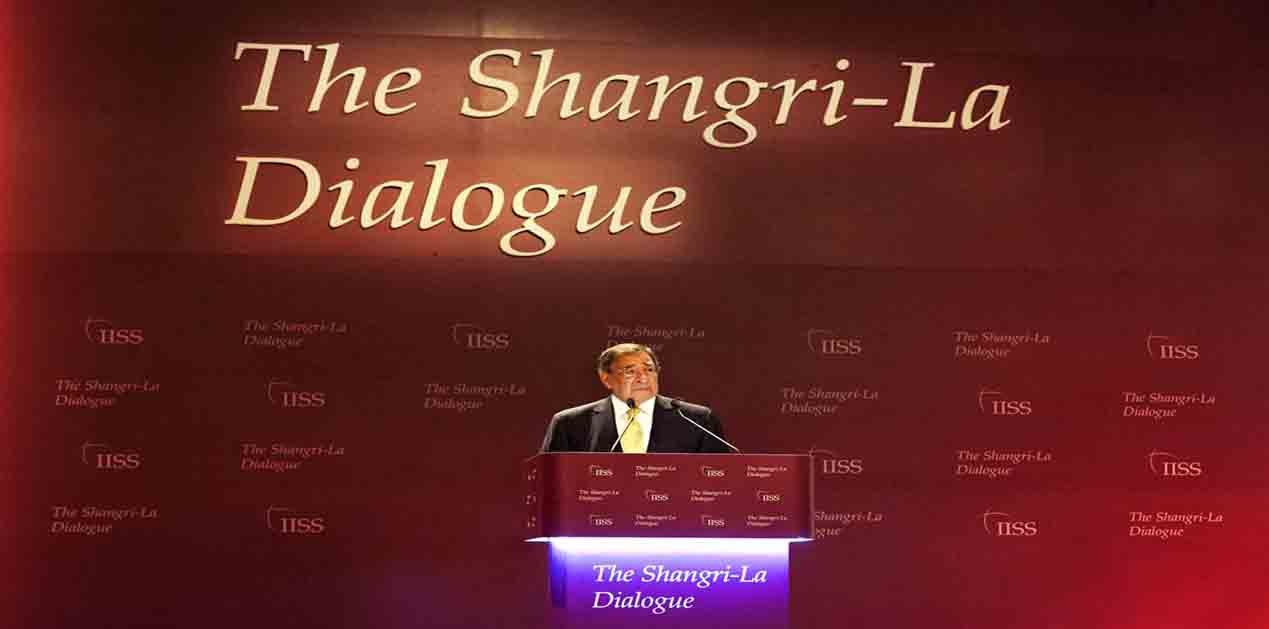
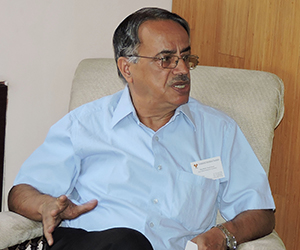




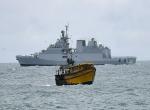
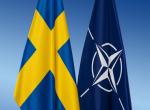

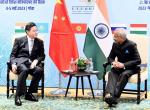
Post new comment